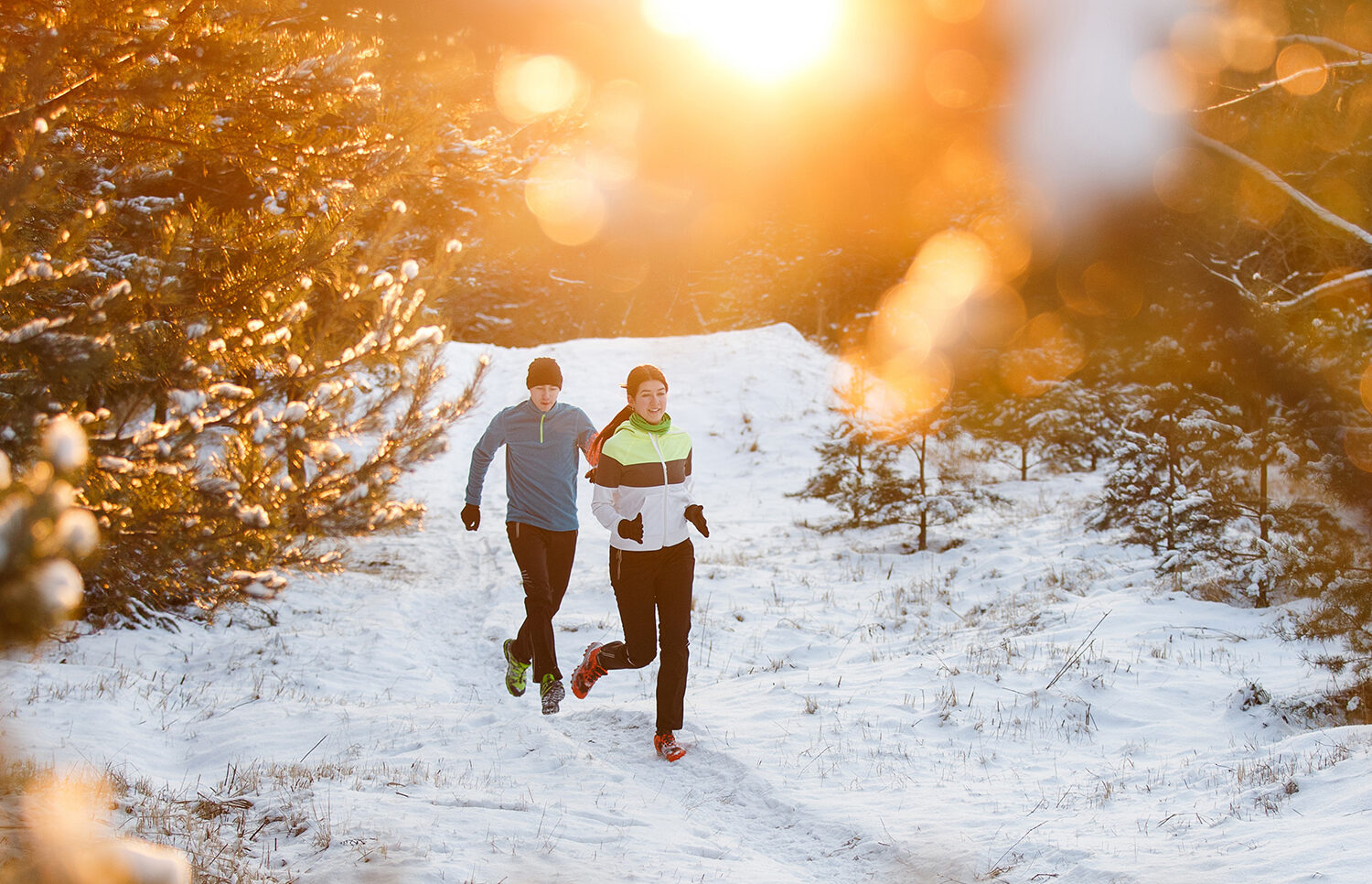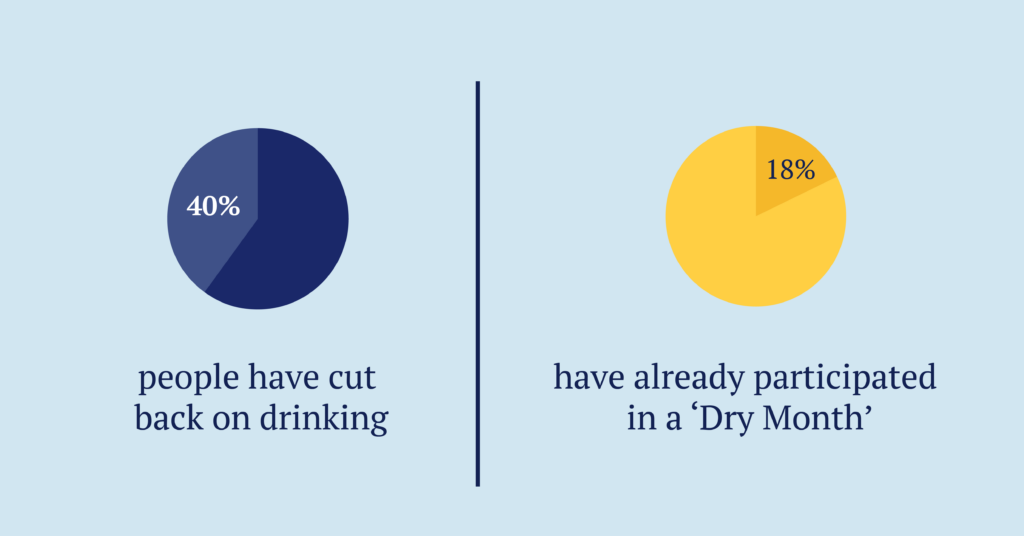Cheers to a Healthier Holiday: 20 Practical Ways to Celebrate with Less Alcohol

With the holiday season upon us, it can often feel like there are endless opportunities to drink. Whether it is an end-of-year work party, toasting with friends to celebrate the holiday, or pouring yourself that rum and eggnog, December can feel fraught with reasons to drink.
Although it is the season of celebration, we now know that even moderate amounts of alcohol can have a negative impact on our health. New guidelines recommend lowering your consumption to mitigate health risks like cancer and heart disease. Data from a recent poll shows that since the new alcohol consumption guidelines were announced, 40% of people have cut back on drinking and two in ten (18%) have already participated in a ‘Dry Month’. More than ever, people are looking for ways to reduce the harms of drinking.

The holidays can feel like a particularly challenging time to cut back, but there are small steps you can take to reduce your alcohol consumption during the season. Consider the following twenty practical tips to help you drink less over the holidays:
- Set clear goals: Define your limits and stick to them. Decide in advance how much you’ll drink on a particular occasion and be specific. Can you delay drinking until a particular time in the evening? Do you want to be done drinking by a specific time? How will you hold yourself accountable to stick to your limit? Setting clear, specific goals in advance of drinking increases commitment to maintaining these goals.
- Alternate beverages: Switch back and forth between alcoholic and non-alcoholic beverages, like water, sparkling water, or mocktails. Alternating between alcoholic and nonalcoholic options allows you to slow down and pace your alcohol consumption.
- Eat before drinking: Consume a meal before drinking to slow the absorption of alcohol into your body. Eating helps you feel satiated and reduces the likelihood of overdrinking. This strategy is one of the most effective ways to avoid overdrinking.
- Pace yourself: Sip your drink slowly and have a glass of water between drinks to give your body time to process the alcohol. Drinking too quickly can have adverse side effects, and we are more likely to drink more than we planned to once we are already intoxicated. One idea is to plan to drink one beverage per hour and set your alarm every hour, so you don’t lose track of time.
- Choose lower alcohol content beverages: Opt for drinks with lower alcohol content, such as light beers or lower alcohol wines to reduce the amount of alcohol you consume. Hard liquor (spirits) is a sure-fire way to over drink.
- Plan alcohol free activities: Include activities in your holiday plans that don’t involve alcohol, such as games, outdoor activities, or cultural events.
- BYOB (bring your own beverage): Bring your own non-alcoholic beverages to social gatherings to ensure you have alternatives readily available.
- Pick an accountability buddy: Share your drinking goals with a friend or family member who can help keep you accountable and support your decision to drink less.
- Be the designated driver: Offer to be a designated driver for friends and family if you choose to remain alcohol free for a particular occasion. Knowing you are responsible for the safety of both yourself, and others when behind the wheel is likely to hold you accountable to drinking goals.
- Practice saying no: Be prepared to decline a drink when offered and practice polite ways to refuse. For example, “no thanks, I am driving tonight,” or “no thanks, I am taking a break tonight.”
- Set a time limit: Decide in advance how long you’ll stay at an event and stick to your plan to avoid excessive drinking over an extended period.
- Practice mindful drinking: Pay attention to the taste and aroma of your drink and savor it slowly. This strategy may seem counterintuitive, but mindful drinking has been shown to reduce the amount that people drink. It can also enhance the experience by making you more conscious of how much you’re consuming.
- Know your triggers: Identify situations or emotions that may trigger excessive drinking and develop strategies to cope with them. For example, is there a particular friend or family member with whom you always over drink? Tell this person your plan or goals for drinking for the evening in advance so they know what to expect.
- Stay active: Engage in physical activities during the holiday season, whether it’s going for a walk, hitting the gym, or participating in group sports. Exercise stimulates the release of feel-good chemicals such as dopamine and serotonin and provides a great alternative to drinking when we are looking for that pleasure boost.
- Create alcohol-free traditions: Establish new holiday traditions that don’t revolve around drinking, such as a themed movie night, cooking with friends, or volunteering.
- Limit access: Control the availability of alcohol in your home or when going out to reduce consumption. If you go out, only bring exactly what you want to drink with you. Once you have consumed what you brought with you, tell yourself you have hit your limit and it’s time to go home or switch to a non-alcoholic drink.
- Create an exit plan: Develop an exit plan for situations where drinking may be more prevalent or where you know you might be triggered to drink more than you planned. This might involve texting a friend to come get you, leaving the environment, or finding a designated driver to take you home at a particular point in the evening. Being prepared can empower you to make healthier choices in challenging situations.
- Practice stress-reduction techniques: The holiday season can be stressful, and stress can be a trigger for drinking more than planned. Learn and practice stress-reduction techniques such as meditation, sitting down to watch your favorite tv show, or engaging in physical activity. Developing healthier coping mechanisms can help you manage stress without relying on alcohol.
- Strength in numbers: Surround yourself with friends or family who have similar goals or consumption patterns when it comes to drinking. Being around like-minded people with similar goals can be very helpful in maintaining your own drinking goals.
- Prepare for peer pressure: Sometimes friends and family can be pushy when it comes to drinking when they want you to join in celebrating. Practice your refusal skills or remove yourself from certain situations if feeling pressured to drink when you do not want to.
Whatever your drinking goal for this holiday season, planning ahead with these 20 tips will help you achieve those goals. Whether it is drinking less on a given occasion, drinking less often, or taking a break from alcohol all together, spend time thinking about what you want your relationship with alcohol to look like this holiday season. Taking action can make your desired relationship with alcohol a reality.
While change is never easy, any step in the right direction is a positive step. Digital resources with support from a caring non-judgmental person can significantly increase your chances of success. ALAViDA can help. At ALAViDA, we provide a wide range of support options to help you change your relationship with alcohol and other substances – be that during the holiday season, or any time you feel ready to make change.
Access the ALAViDA TRAiL.
About the author:
Rebecca Bartlett (RSW/MSW) is a Registered Social Worker in the provinces of British Columbia, Alberta and Ontario. Rebecca has worked in a variety of Social Work settings throughout her career, including child and youth care, family support, crisis intervention, and substance use care. Rebecca holds a Bachelor of Social Work from the University of British Columbia, a Master of Social Work from the University of Victoria, and numerous post graduate certificates including specialties in Cognitive Behavioral Therapy, Dialectical Behavioral Therapy, and Mindfulness-Based Cognitive Therapy. Rebecca is a Virtual Health Coach and the Virtual Health Coach Supervisor at ALAViDA Substance Use, a LifeSpeak Inc. product, and also works in private practice.